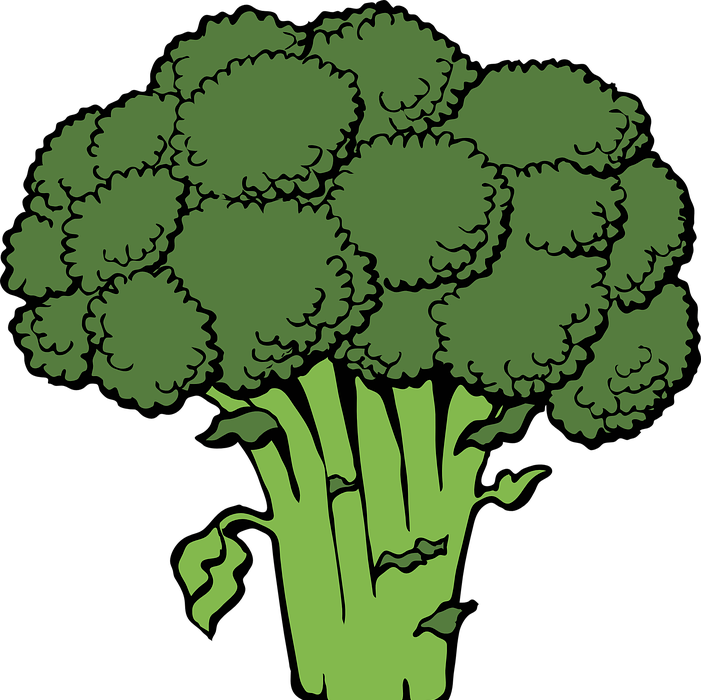This comprehensive guide delves into the safety and suitability of broccoli for rabbits, offering detailed insights into the nutritional profile of this cruciferous vegetable and its potential impact on your bunny's health. We explore the benefits and risks associated with broccoli consumption, providing practical tips for introducing it into your rabbit's diet safely and responsibly.
Part 1: Understanding Rabbit Nutrition: A Foundation for Healthy Eating

1.1 The Essentials of a Rabbit-Friendly Diet
Rabbits are herbivores with unique digestive systems. Their diet should consist primarily of high-fibre hay, providing essential roughage for healthy digestion and optimal gut health. Fresh vegetables and a small amount of rabbit pellets should complement the hay, ensuring a well-rounded nutritional intake.
1.2 The Importance of Fibre
Fibre is crucial for maintaining a healthy digestive tract in rabbits. It stimulates gut motility, preventing hairballs and promoting regular bowel movements. Hay, such as Timothy hay, should be readily available at all times, making up the majority of a rabbit's diet.
1.3 Essential Vitamins and Minerals
Rabbits require a range of vitamins and minerals for optimal health, including vitamin C, vitamin A, vitamin K, calcium, potassium, and magnesium. While fresh vegetables are a good source of these nutrients, they should not replace the essential role of hay in the diet.
1.4 Understanding the Role of Fresh Vegetables
Fresh vegetables offer valuable vitamins, minerals, and antioxidants that contribute to a rabbit's overall well-being. However, they should be given in moderation, representing a small portion of the total diet. Overfeeding vegetables can lead to digestive issues and nutritional imbalances.
Part 2: Unveiling the Nutritional Profile of Broccoli

2.1 A Nutrient-Rich Powerhouse
Broccoli stands out as a nutrient-dense vegetable, boasting a high content of vitamins, minerals, and antioxidants. Its key nutritional components include:
- Vitamin C: A potent antioxidant supporting immune function, collagen production, and wound healing.
- Vitamin K: Crucial for blood clotting and bone health, aiding in calcium absorption.
- Vitamin A: Essential for vision, skin health, and immune function, contributing to cell growth and development.
- Fibre: Promotes digestive health, aids in regulating blood sugar levels, and may contribute to weight management.
- Sulforaphane: A powerful compound linked to potential cancer prevention and anti-inflammatory effects.
- Calcium: Important for bone growth and development, nerve function, and muscle contraction.
- Potassium: Essential for muscle function, nerve transmission, and fluid balance.
- Magnesium: Crucial for muscle and nerve function, bone health, and energy production.
2.2 Potential Benefits for Rabbits: Exploring the Possibilities
While specific research on the impact of broccoli on rabbits is limited, its nutritional profile suggests potential benefits:
- Enhanced Immune Function: The high vitamin C content could contribute to a strengthened immune system, improving the rabbit's ability to fight off infections.
- Improved Digestive Health: The fibre content may aid in digestion, promoting regular bowel movements and preventing digestive issues.
- Antioxidant Protection: Broccoli's antioxidants could offer protection against cell damage caused by free radicals, contributing to overall health.
Part 3: Navigating the Safety of Broccoli for Rabbits: A Balanced Approach
3.1 The Cruciferous Family: A Closer Look
Broccoli belongs to the cruciferous family of vegetables, including cauliflower, Brussels sprouts, and kale. While these vegetables are generally safe for rabbits in moderation, concerns exist regarding their potential impact on digestion due to their unique chemical composition.
3.2 Potential Risks and Considerations: Understanding the Concerns
- Gas and Bloating: Cruciferous vegetables can cause gas and bloating in rabbits due to their high fibre content and specific compounds like glucosinolates, which can be difficult for rabbits to digest.
- Calcium Content: While broccoli provides calcium, excessive consumption can contribute to urinary tract issues in rabbits, particularly in those predisposed to bladder stones.
- Oxalates: Broccoli contains moderate levels of oxalates, compounds that bind to calcium and can reduce its absorption, potentially impacting bone health.
- Goitrogens: Cruciferous vegetables contain goitrogens, substances that can interfere with thyroid function. However, the effects in rabbits are generally minimal, but it's still a factor to consider.
3.3 Safe Feeding Practices: Minimising Risks and Maximising Benefits
To mitigate potential risks and ensure safe broccoli consumption for your rabbit, follow these practices:
- Offer in Moderation: Broccoli should be given sparingly, representing a tiny portion of the rabbit's overall diet.
- Introduce Gradually: Start with a small piece of broccoli and monitor your rabbit's reaction closely before increasing the amount.
- Choose Fresh, Organic Broccoli: Opt for fresh, organic broccoli whenever possible to avoid pesticide residues that can be harmful to rabbits.
- Wash Thoroughly: Always wash broccoli thoroughly before feeding it to your rabbit to remove any dirt, bacteria, or pesticide residue.
- Remove Stems and Tough Parts: The stems and tougher parts of broccoli can be challenging for rabbits to digest and should be removed.
Part 4: Exploring Alternatives to Broccoli: A Variety of Options
While broccoli can be a healthy treat in moderation, various other safe and nutritious vegetables offer similar benefits and can diversify your rabbit's diet:
- Parsley: Rich in vitamin C and antioxidants, parsley can be a refreshing addition to a rabbit's diet, providing a burst of flavour and essential nutrients.
- Spinach: Spinach is a good source of vitamins A and K, but its high oxalate content means it should be offered sparingly.
- Bell Peppers: Bell peppers provide vitamin C and antioxidants, offering a vibrant colour and sweet flavour to your rabbit's meals.
- Cilantro: Cilantro is a good source of vitamin K and antioxidants, providing a unique flavour and aroma that some rabbits enjoy.
- Dandelion Greens: Dandelion greens are packed with vitamins, minerals, and fibre, offering a nutritious and readily available option for rabbits.
- Celery: Celery is a low-calorie vegetable providing a refreshing crunch and a source of vitamins and minerals.
- Cucumber: Cucumber is a hydrating vegetable that can be offered in small amounts, providing a refreshing and palatable treat for rabbits.
Part 5: Monitoring Your Rabbit's Health: Recognizing Signs of Digestive Distress
It is crucial to monitor your rabbit's health after introducing new foods, including broccoli. Watch for any signs of digestive upset, which could indicate intolerance or adverse reactions:
- Diarrhea: Loose or watery stool, suggesting an issue with digestion or absorption.
- Constipation: Difficulty passing stool, indicating a blockage or slowed digestive process.
- Gas and Bloating: Increased gas production and abdominal distention, possibly due to fermentation or difficulty digesting certain compounds.
- Loss of Appetite: Reduced interest in food, potentially signalling discomfort, illness, or a change in taste preferences.
- Lethargy: Lack of energy and inactivity, possibly indicative of discomfort, pain, or illness.
If you observe any of these signs, consult your veterinarian immediately for diagnosis and appropriate treatment.
Part 6: Unveiling the Science Behind Rabbit Digestion: The Caecotrophy Process
6.1 A Unique Digestive System: Caecotrophy
Rabbits possess a unique digestive process called caecotrophy. They produce soft, nutrient-rich faecal pellets called caecotrophs, which they consume directly from their anus. This allows them to extract essential nutrients that were not initially absorbed during the first pass through the digestive tract.
6.2 The Importance of Caecotrophs: Maximising Nutrient Absorption
Caecotrophs are crucial for rabbits as they contain high levels of vitamins B, vitamin K, and essential amino acids. These nutrients are essential for maintaining gut health, supporting immune function, and ensuring overall well-being.
6.3 Factors Affecting Caecotrophy: Diet, Stress, and Health
The caecotrophy process can be influenced by factors like diet, stress, and overall health. A diet lacking in roughage, such as hay, can disrupt the process and reduce the production of caecotrophs. Stress and illness can also negatively impact caecotrophy.
Part 7: Understanding the Specifics of Broccoli Consumption: A Detailed Guide
7.1 Can Baby Rabbits Eat Broccoli?
It is generally recommended to avoid feeding broccoli to baby rabbits as their digestive systems are still developing and may not be equipped to handle the complex compounds present in cruciferous vegetables.
7.2 How Often Can I Give My Rabbit Broccoli?
Broccoli should be offered as a rare treat, no more than once or twice a week, and only in very small quantities. Overfeeding can lead to digestive issues, nutritional imbalances, and potential health complications.
7.3 Can I Give My Rabbit Cooked Broccoli?
Cooked broccoli is not recommended for rabbits. The cooking process can alter the nutritional content and make it more difficult to digest. Additionally, cooked broccoli may contain added ingredients like salt, oil, or seasonings that are harmful to rabbits.
7.4 Can Rabbits Eat Broccoli Florets?
Broccoli florets are generally safe for rabbits in small quantities, but the stems should be avoided as they can be too tough to digest.
7.5 Can Rabbits Eat Broccoli Stalks?
Broccoli stalks are too tough and fibrous for rabbits to digest and should not be given to them. The stems contain a higher concentration of oxalates, potentially contributing to urinary tract issues.
7.6 Are There Any Specific Breeds of Rabbits That Cannot Eat Broccoli?
There are no specific breeds of rabbits known to be unable to tolerate broccoli. However, individual rabbits may have different sensitivities or preferences, making it crucial to introduce new foods gradually and monitor their reactions.
Part 8: FAQs: Addressing Common Concerns
Q1: What are the best vegetables to feed my rabbit?
A diverse range of vegetables is safe for rabbits, including parsley, spinach (in moderation), bell peppers, cilantro, dandelion greens, celery, and cucumber.
Q2: How do I know if my rabbit is getting enough fibre?
Ensure your rabbit has unlimited access to high-quality hay, such as Timothy hay, and observe their faecal pellets, which should be firm and well-formed.
Q3: What are the signs of a healthy rabbit?
A healthy rabbit is active, alert, has a good appetite, and produces firm, well-formed faecal pellets. Their fur should be smooth and glossy, and their eyes bright and clear.
Q4: How often should I give my rabbit fresh vegetables?
Fresh vegetables should be offered daily, making up a small portion of their overall diet. A good rule of thumb is to offer a cup of chopped vegetables per 5 pounds of body weight.
Q5: Can I give my rabbit lettuce?
While lettuce is low in calories, it lacks nutritional value and can cause digestive upset in rabbits. It's best to avoid offering lettuce to your rabbit.
Q6: What are some signs of a rabbit that's not feeling well?
Signs of illness in rabbits include lethargy, loss of appetite, weight loss, changes in faecal pellets, sneezing, runny nose, eye discharge, or difficulty breathing. If you observe any of these signs, seek veterinary attention immediately.
By following these guidelines, you can ensure your rabbit enjoys a balanced and nutritious diet that supports their overall health and well-being. Remember to consult with your veterinarian for personalized advice on your rabbit's dietary needs and to address any specific concerns.
Everyone is watching
-

Do Rabbits Lay Eggs? (The Surprising Truth)
OTHER TYPES OF PETSThis article will unravel the common misconception that rabbits lay eggs, exploring the fascinating world of r...
-

Can Rabbits Eat Grapes? A Guide to Safe Rabbit Treats
OTHER TYPES OF PETSThis comprehensive guide will explore the safety and suitability of grapes for rabbits, providing detailed inf...
-

What's a Group of Rabbits Called? (A Comprehensive Guide)
OTHER TYPES OF PETSThis article delves into the fascinating world of rabbits, exploring the various terms used to describe a grou...
-

Predators That Hunt Rabbits: A Guide to Natural Enemies
OTHER TYPES OF PETSI've always been fascinated by the circle of life, that delicate dance between predator and prey. Growing up ...
-

Are Rabbits Nocturnal Animals?
OTHER TYPES OF PETSThe question of whether rabbits are nocturnal animals is a fascinating one, with a surprisingly complex answer...
